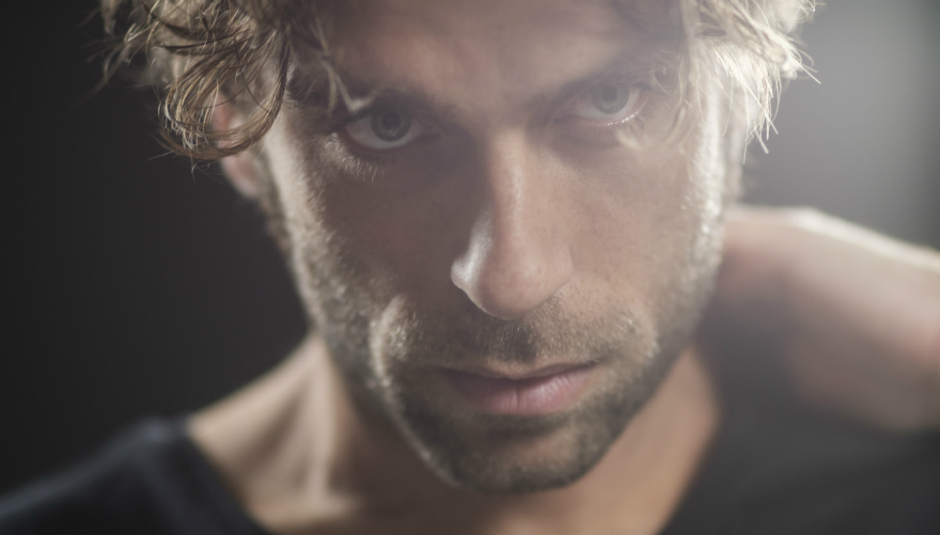The first thing you notice are the houses floating in the sky. Flashes of light rise up from the water, one after another, each one an impossible feat of geometry and space that rents the physical world asunder, unclear whether it should belong to the ocean or the stars. As the bus moves further into the city and your eyesight adjusts to unseen horizons, realisation dawns: the creases above the light do not cleave the sky from the clouds, but the mountains from the sky. In England, certainly, seaside towns are not usually distracted by mountains. If this sounds familiar, perhaps you have also seen Palermo for the first time on a late evening bus journey.
As I depart the bus and find my suitcase, a man is already stood waiting for me. Even by Sicilian standards, Fabrizio Cammarata is absurdly handsome, and although he confesses to several stories of having his heart broken across the weekend to follow, one suspects it has worked both ways. In Palermo, the eyes begin to adjust to beauty as they would to the dark; by the time we’ve reached the renovated 19th Century palace that I’d be calling home for the next two days, I fear that the slightly fancier Wetherspoons pubs of Exeter and Sheffield may no longer hold the same majesty.
Palazzo Lampedusa once belonged to Giuseppe Tomasi di Lampedusa, celebrated author of The Leopard and the last Prince Of Lampedusa. Five years ago it was transformed into a recording studio with guest rooms, though it has lost none of its palatial glamour; the building’s incredible high ceilings still stretch out towards the sky, its walls now decorated with the writer’s words. As we stroll out for a beer in one of the local tavernas, it becomes apparent that this an apt metaphor for the city itself, a place where history is not consigned to the past, but lives and breathes through its art, writing, and architecture; most of all, its spirit resides within those who live and love within Palermo, and for whom the city resides within them too.
“I tend to see Palermo as if it was a sort of living being,” Cammarata explains. “And we are just smaller parts of this big thing, like the bacteria inside an animal. I think Palermo has its own psychology, its own virtues, good deeds and bad deeds. It’s moody. It’s just like a person.” As with any relationship, the singer-songwriter is aware that nothing is one-dimensional. “There’s this constant sense of guilt that you can breathe in the air, a constant struggle between renewing yourself and being faithful to your history, to your traditions. I never talk about the city in my songs, but you can feel these themes in almost everything I write.”
In every conversation, we return to the nature of duality within and without the physical territory of the city, of beauty and terror, hostility and hospitality, pain and joy. Cammarata often speaks of what he calls “our 9/11”, when several people were killed in a Mafia bomb attack on via d’Amelio in 1992. On the day after I arrive, the city centre is cordoned off for an anti-fascist demonstration, one of several taking place around Italy in response to the rise of neo-fascist parties like CasaPound and its equivalents around Europe. Much like the rest of the world, Sicily is in turmoil.
For many acts outside the UK, Ireland, the US, and Canada, a more subtle conflict arises between regional, national, and international culture. Even as a child, Cammarata charmingly learned his first guitar part from obsessively studying a VHS copy of Back To The Future (“pausing it frame by frame to see where Michael J. Fox was putting his fingers”), putting together a facsimile of the ‘Johnny B. Goode’ riff before he knew what any of the notes or chords were called. American music, film, and art was a powerful force from then on, later leading to the discovery of acts he adored like Bob Dylan. Nonetheless, it’s a process that inevitably involves the fragmentation of one’s own culture, as the artist himself is acutely aware.
“There’s something to the research of one’s cultural and musical identity that’s wrong with this country. There’s a point in history where you see that, in some countries, artists have stopped nurturing their traditions. Even those who keep writing songs in their own language, or even dialect, started to do it in an American way – especially in mainstream music, but even in alternative music you see very little of that heritage.” For Cammarata, that applies at a local level too. “With traditional Sicilian music, I see that they only study it now in academies or universities as musical ethnology. It’s like studying Latin. So this music has totally disappeared from our DNA. You see all these artists wandering around, searching for their identity, and it’s tough. That happened to me as well, because I felt I had the instinct to express myself through music, but I had no roots. When it comes to roots, I looked somewhere else ever since I was a child.”
After a few years spent jamming songs by The Stones and The Strokes in local rock covers bands, he stumbled upon an artist, late at night on MTV, who proved to be a significant catalyst in his own understanding of what songwriting could mean: Damien Rice. From that moment, whatever those seminal rock bands may have carried in swagger felt less powerful than the intimacy of bearing one’s soul on record. “Suddenly it felt legitimate that I could do that too, to be so intimate in both the writing and singing of a song. So I decided to put my shyness aside, and that’s when I started to show my music to people.”
When Cammarata finally met Rice – following a string of successful slots opening for the likes of Ben Harper and Patti Smith – it was a dream come true. After seeing his show in the awesome Taormina theatre, the two hung out for some beer and chats, and they quickly struck up a friendship. “We spent the whole night just playing around in the streets of Taormina, this beautiful town near the Etna volcano. I played him some of my songs, including one called ‘Miriam’. As soon as I finished it he said: ‘I wish I’d written that song’.” Cammarata visibly glows recounting the story, the ultimate validation of his own artistic vision from someone who had achieved it all at a high level. “Of course, I don’t know if he really meant it, but it meant a lot to me. It’s cool because he kind of turned from my hero to a colleague. You just think, ‘This guy’s much bigger than me, super successful, but we do the same job.’”
As far as jobs go, Cammarata seems to be hitting every target. His recent live activity has seen him perform at festivals such as Reeperbahn and Kaltern Pop, and at shows with Lucinda Williams, the Dears, Emilíana Torrini, and Justin Nozuka. He’s playing SXSW again this year, a place he already knows and loves. “SXSW is a very special event, and I think it’s the best place to be if you work in music. It’s always been a good place for me to make connections – but at the same time, I just love playing in the U.S., because I think they have some of the best audiences. Austin is such an amazing and vibrant town, and it’s always been a pleasure to play there.” This time he gets to show off his new songs, and one suspects they will go over well in another city that carries its own unique energy and character.
Among the records Cammarata has made across his career to date, none capture the artist’s spirit of honesty in music more perfectly than his latest album Of Shadows. Equal parts tender and powerful, it came about as an organic reaction to the end of a relationship (“I can’t plan records,” he readily admits), and the record began with the writing of a song that remains crystallised in that time of his life. “After I wrote ‘Long Shadows’, I knew it was the right time. I remember writing it in Spain on a day off when I’d just had a really disappointing, disillusioning moment in love. The woman that I loved just decided to quit it with me. So I spent a whole sleepless night writing this song, and after I recorded it, I sent her the song. It didn’t work, of course…”
Nonetheless, it worked for the song. “When it came time to record the album, we tried a few new takes, but I could feel it was totally frozen compared to the emotion of a song that’s just been written. That first take still carried the hope that I could win that person back, and while we kept a few overdubs, the vocals and guitar that you hear on the album are from that original recording.” It proved to be a good call; the emotion is audible throughout, a lament that sits up there with the most lovelorn work of his idols. But of course, there’s that word: hope. “Even the darkest Leonard Cohen song, or the darkest Nick Drake song, is never without hope. And that’s what makes beauty.”
Like any city, though perhaps none more than Palermo, Of Shadows is a complicated beast, never succumbing to misery or revelling in ecstasy, but locating the intersections of both. Elsewhere on the record, he explores the way in which physical and emotional spaces overlap, particularly on ‘I Don’t Belong Here’, a beautiful examination of love’s lost corridors. “Some places become familiar because the people you’ve attached to that place. This very apartment is something I find very familiar, not just because I wake up here every morning, but because of all the people that have come in and out of that door,” he tells me, gesturing around. “And some of those people were very important to me, so it still contains their spirit.” As with the streets themselves, his music is defined as much by ghosts as by those among the living, those who occupy their galleries and market stalls.
“The reason why I love Palermo is not only because it’s a beautiful place, but also because of all the people that make up this town. If you fall in love with someone in a particular place, that space becomes part of that love story. And if you feel like you belong somewhere because a person is attached to that memory, the two become connected. If you no longer belong to that person, you start to feel that you no longer belong to the space you inhabited together either.” For Cammarata, romance cannot be divorced from the world which it inhabits; the two are linked, and when we fall in love, it is with the shape of the world that love forges around us as much as the desired body itself.
If our lives operate in flux, then we must take both grief and consolation from knowing that the pain will pass as readily as the pleasure. Nothing is fixed. The cover art for Of Shadows depicts a solar eclipse, a photograph taken from the 1920s that reveals the spectacular darkness that only light can create. “During that time when the sun is eclipsed, there is total darkness, and then the light comes back again. But what has happened in between? Is the light that you see before the eclipse the same as the one that you see afterward? No, something has happened, and it’s in that moment of darkness that you see a lot.”
By the time I come to leave Palermo, it’s daytime. Those tiny pinpricks of light that illuminated the mountains are already a fading memory, and all I am left with is the afternoon’s faltering sunshine. “We all think the sun is that perfect yellow ball, but during the eclipse, we witness what the sun really is: this violent sphere, full of eruptions, so inconstant,” Cammarata says. He’s right. Nothing is constant, but that’s where the magic lies. “We see that it’s not perfect, and the only way we can witness that is through darkness. When the light comes back, it’s not the same light, because you’re aware of something. If you translate this to exploring the deepest parts of your soul, the most hidden and uncomfortable corners, it is the same: you will always know a little more about the light after the dark has passed.”
Of Shadows is out now via 800A Records / Kartel Music Group and Haldern Pop Recordings. For more information about Fabrizio Cammarata, including his forthcoming appearances at SXSW and other tour dates, please visit his official website.
Photo Credit: Dodo Veneziano























